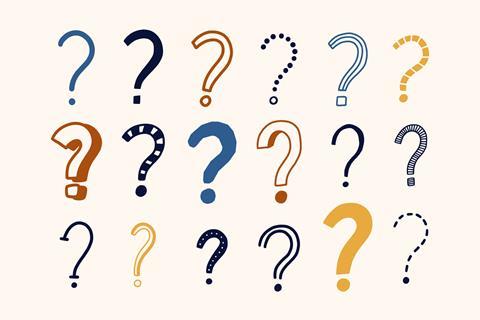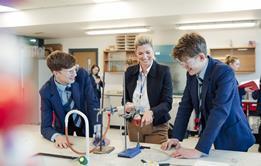Effective use of questioning will actively involve your students in their learning, develop understanding and provide invaluable feedback

What is questioning?
Questioning is the use of effective questions, either planned or incidental, to confirm and develop knowledge and understanding.
An effective question is the start of a constructive dialogue.
Why use this technique?
Effective questioning presents a variety of opportunities and benefits in the classroom:
- discovering what students know
- identifying misconceptions
- showing progress
- fixing facts
- challenging beliefs
- developing understanding and reasoning
- developing class participation
- regaining attention
The more students talk and write about a topic, the more they will get out of the learning experience.
How do I set it up?
In order to make effective use of questioning, plan to use questions at strategic points.
Plan the questions in terms of ’pose ‑ pause ‑ pounce’:
- Pose questions that are relevant, reasonable and unambiguous.
- Allow plenty of pause, preferably telling the students how long this will be.
- Over time, involve all members of the class, but with a judicious choice of question.
Questions are important to develop understanding and competence not only with the whole class, but when circulating and supporting smaller groups.
An effective series of questions might start with a closed question, followed by open questions graduated according to a cognitive taxonomy:
- What was your result?
- How did you arrive at that result?
- Where else can you use this method?
- How can you improve the method?
Encourage high demand students by giving prompts.
Use key questions to check learning and so promote self-confidence.
Acknowledge correct answers and use them as a springboard with others in the class.
Poor answers are an opportunity to develop students’ thinking, particularly because other students can be drawn into the dialogue.
Summarise important points given in answers.
Hints and tips for effective questioning
- Remember affective and psychomotor, as well as cognitive, domains. The level of all three can be raised with effective questions.
- Answering needs to be non‑threatening for students. Use strategies such as asking for answers on mini whiteboards, using a ‘No hands up’ rule or in pictures rather than words.
- Treat questions posed by students with equal respect.
- Break down students’ questions into simpler ones and then ask these of the group.
- Establish a supportive atmosphere, so that students are comfortable about answering and asking questions in public.
- Aim to create a culture where an incorrect answer is viewed as a learning opportunity.
Common issues to watch out for
- Trick questions betray trust.
- Students may misinterpret probing questions as interrogation.
How can I tell if it is successful?
When you devise your checklist to evaluate the session, consider how you will measure:
- How many questions were pre-planned and how many were opportunity‑led.
- How well the dialogue developed to higher levels of thinking.
- The extent to which everyone was engaged with sharing ideas and challenging others.
Additional information
This information was originally part of the Assessment for Learning website, published in 2008.
Principles of assessment for learning

Encourage your students to take an active role in their learning using these assessment for learning principles to structure and plan your chemistry lessons.
- 1
- 2
- 3
- 4
 Currently
reading
Currently
reading
Questioning
- 6
- 7































No comments yet